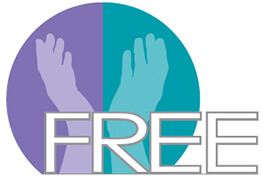The first thing that comes to mind when we hear “dementia” is usually Alzheimer’s disease and memory loss, however, there is so much more to dementia. There are many diseases that fall under the diagnosis of dementia, which is why it is considered an umbrella term including: Alzheimer’s disease; Lewy bodies disease; Vascular dementia and Frontotemporal dementia. All of these cause symptoms of dementia and contribute to the brain failing or dying. Although symptoms may overlap, each disease is unique and care varies depending upon the symptoms.
Within the ID/DD population, Alzheimer’s disease is on the rise. Those at higher risk of developing the disease are the men and women with Down’s syndrome, due to an extra copy of chromosome 21. The extra copy of chromosome 21 plays a role in forming higher quantities of amyloids and plaque in the brain, which are the main contributors of Alzheimer’s disease.
Although there is no cure, early diagnosis could lead to slowing progression of the disease and sometimes improve symptoms. Such treatments include use of medications and brain stimulating activities. Symptoms may be seen as early as age 40 and at times may take up to 2 years to diagnose for a person with Down’s syndrome.
The key role of early diagnosis is recognizing changes in a person’s behavior, thinking or task process, lack of interest in actives they usually enjoy and decrease in communication skills.
Additional signs to look for:
Memory loss, challenges with familiar tasks, confusion, disorientation, trouble with vision and hearing, withdrawal from social activities and changes in personality.
REMEMBER: A person should be seen by their healthcare provider when they display any changes from their normal level of functioning.
A few ideas of activities for stimulating the brain of people with dementia include:
- Exercise
- Games
- Word search
- Folding towels
- Painting
- Dancing
Listening to music – stimulates happy emotions:
Neurologist Oliver Sacks said, “Music can evoke emotion, and emotion can bring with it memory….it brings back the feeling of life when nothing else can.”
Linda Maguire (lead on the study) noted, “Musical aptitude and music appreciation are two of the last remaining abilities in patients with AD. Because these two abilities remain long after other abilities have passed, music is an excellent way to reach beyond the disease and reach the person.”
Most important – activities should be of interest to the person. Engaging the person is the key. Never approach the person with; “Do you want to do a puzzle?” their response most likely will be; “NO.” Try instead to direct the person to the table with the puzzle, sitting next to them and engaging them in the activity by doing it with them. They will be more likely to start participating. Once they know what you expect of them, their fear is minimized and they are most likely to engage in the activity.
Blog Post by Mary Sherry, RN
Family Residences and Essential Enterprises, Inc.
For additional information contact:
Alzheimer’s Association
www.alz.org
Alzheimer’s Foundation
www.alzfdn.org

